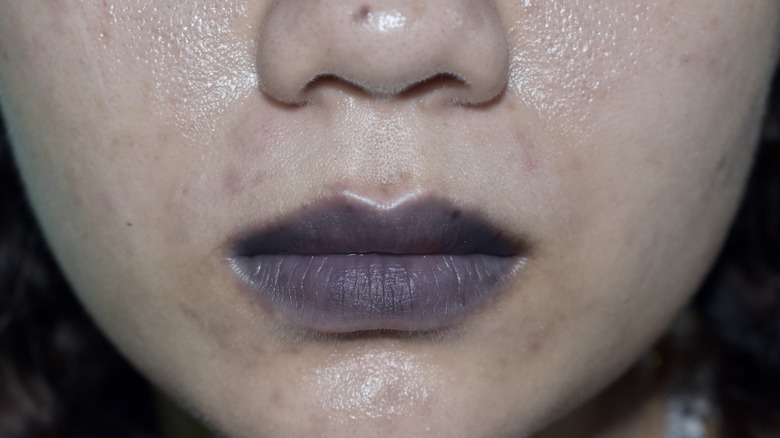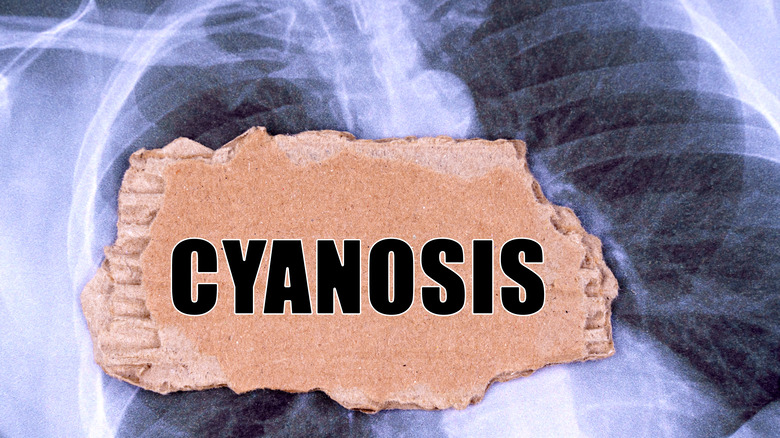What It Really Means When Your Face Turns Blue
When embarrassed, it's not uncommon for a person's face to turn red and flush. When sick, your face may take on a greenish tint as you fight against worsening nausea. Of all the colors your face can turn, you may be surprised to know that blue is one of them.
What is considered a natural and healthy skin color will vary from person to person — from shades of brown to black to white, according to a study in the Annales de Dermatologie et de Vénéréologie. Per HealthGrades, skin pigmentation is determined by cells known as melanocytes, which regulate how much melanin is produced in our skin. Melanin is what gives the skin its unique color and shade. Those with less melanin are more likely to have skin of a lighter color, while skin that produces more melanin will be darker in color. Melanin itself is brown in color, but its effect will be determined by how deep it resides in the layers of the skin. The deeper the melanin in the skin, the resulting color can be gray, green, and yes — even blue. So what exactly is your body trying to tell you when your face begins to turn blue?
Causes of blue skin
According to MedlinePlus, blue skin is the result of the blood not receiving enough oxygen, a condition otherwise known as cyanosis. When blood is oxygen-deprived, it takes on a bluish tint which is then reflected in the skin. For those with darker skin shades, cyanosis can be detected by the presence of blue skin around the eyes, gums, and lips. Cyanosis can develop both over the short and long term. In the long term, cyanosis can result from ongoing heart and lung conditions. In the short term, cyanosis can be brought on by choking, pneumonia, and blood clots (via National Health Service).
Additionally, an overaccumulation of silver in the body can also result in a blue facial color (via WebMD). While rare, this condition known as argyria can cause skin, eyes, and gums to appear blue-gray, often beginning in the mouth and appearing most pronounced on the nose and forehead. Overexposure to silver can occur through frequent handling, inhalation, and ingestion. Therefore, experts stress the importance of limiting consumption of silver-containing medications or supplements, and to ensure your workplace is abiding by federal exposure guidelines if the handling of silver is involved on the job.
As per the National Health Service (NHS), be sure to seek emergency medical attention if you or a family member experiences a sudden bluing of the face, lips, or tongue, particularly if accompanied by breathing issues or pain in the chest.


